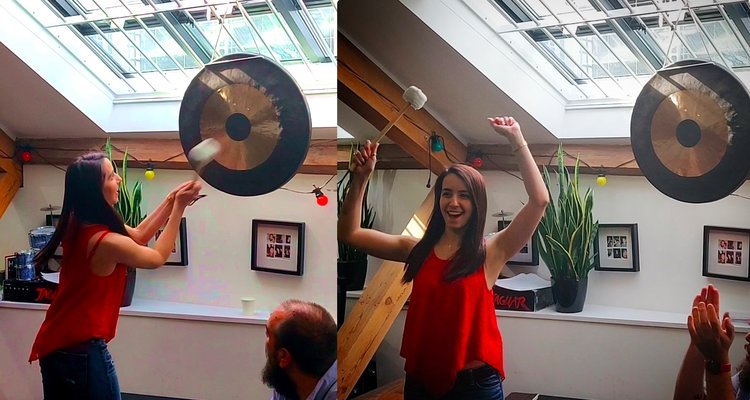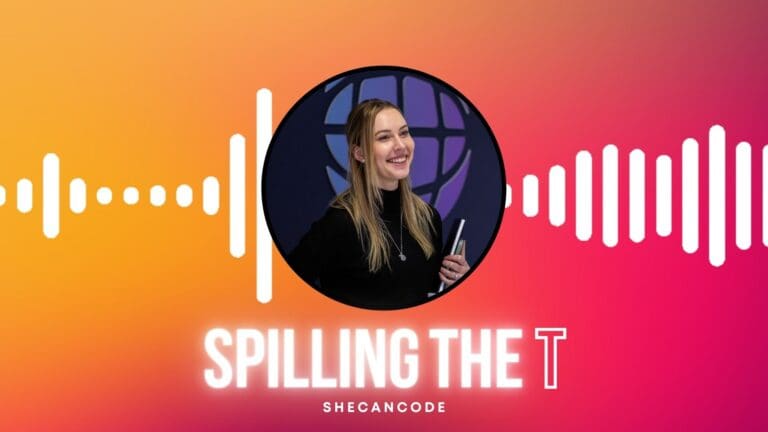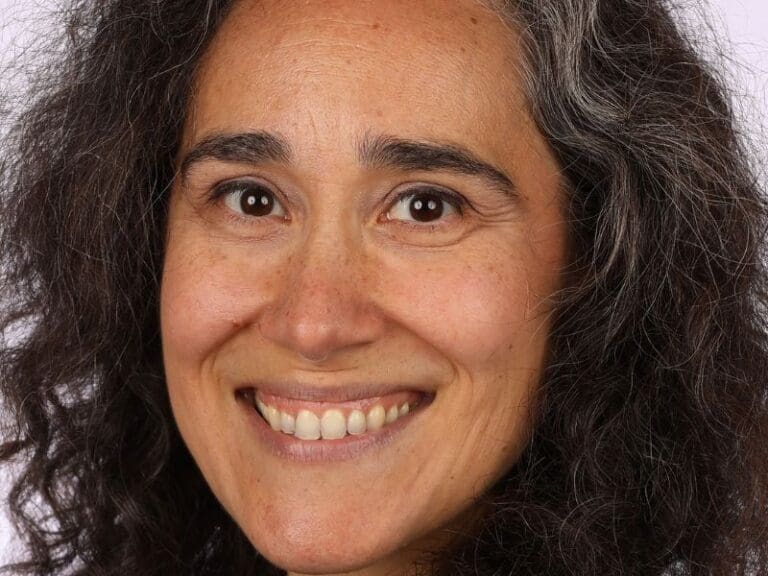If you’re thinking of a career change into Software Development, you might wonder how long it could take you and loads of other questions. Let’s see if I can answer some of them!
Context: I’m a recent bootcamp graduate who’s about to start her FIRST JOB AS SOFTWARE ENGINEER! Wohoo!
Disclosure: this is my experience, therefore it can help you have an idea, but you may imagine that every story is different depending on many factors.
Let’s have a closer look to my past year:
June 2018
Last year about this time, I was not-too-happily employed in Events Management, having graduated in Hospitality Management in 2015. I had had an itchy desire of changing something in my life for a while and IT was always an industry I hoped I had gotten into earlier in life, as I definitely didn’t want to go back to university at 26 years old, for 3–5 more years of study. Still, I liked my job and my team and I was waiting for a promotion (that I wasn’t sure I wanted).
July 2018
For various reasons I understand that I won’t be getting the promotion promised and I realise that I didn’t want it either. I start Googling random ideas for a change (by this time it was ANY change, including changing country, volunteering abroad, etc etc) and I bump into the term “bootcamp”. I start emailing some of them for information.
August 2018
 I visited Makers Academy during a Demo Day (final projects presentation of a cohort) and another bootcamp for a Q&A event. Both bootcamps state that you don’t need any experience to get in, therefore I underestimate the requirements.
I visited Makers Academy during a Demo Day (final projects presentation of a cohort) and another bootcamp for a Q&A event. Both bootcamps state that you don’t need any experience to get in, therefore I underestimate the requirements.
Context: at this point I still have absolutely no experience in coding, other than a very vague exposure to HTML & CSS in my previous jobs.
I decide to apply to both these bootcamps and I stress out as I understand that I won’t be getting anywhere close to the requirements in just a weekend, therefore I decide to plan it better and take some more time. For more advices about what to consider when you apply, have a look at my first blogs:
Check Makers Academy next events on Eventbrite.
September 2018
I visit Makers Academy once again, for an Intro Cohort evening (where you can study and code with a community around. Alumni and Makers staff can help you and answer questions about the course).
This first event was held on the mezzanine, the top floor, where graduates can work and job-hunt from, after the course. There’s a gong hanging from the ceiling and we’re told the “tale” of graduates hitting the gong to celebrate getting their first job in the industry. I think: “Can you imagine me getting there?!”
I ultimately choose Makers Academy over other bootcamps and decide to focus on their requirements, getting through Learn Ruby in Codecademy. As I was still working full time and I was learning how to code from ZERO, it took me about 2 months of weekends to feel ready to apply.
October 2018
I’m still studying in my free time, visiting the Academy for Demo Days and Intro Cohorts when I can. I finish Ruby on Codecademy and swap to Codewars to train on simple katas (8 to 6 kyu), reaching at least 160 points.
November 2018

I GOT ACCEPTED!
I schedule a pairing session with a technical coach from the Academy and I believe that this is meant to tell me if I’m ready for the interview. The follow up email from the pairing session starts with: “Welcome to Makers!” and I’m accepted into the next cohort: pre-course starting at the end of November 2018, on-site course from January 2019.
At this point I needed to think if I was going to accept this starting date but having to get through the pre-course while working full time, or push it back a month, to leave my job by Christmas and do the pre-course from January.
As this pre-course was unusually of 6 weeks rather than 4 (due to the Christmas break) I accepted the challenge!
One week prior to starting my pre-course, I attend another Intro Cohort where I meet who then became a friend and mentor, and another future-friend who was finishing the pre-course at the time, starting the on-site course one month before me. They both gave me some advices on how to get ready for the pre-course (Learn Git, Learn Command Line and build a simple game like Rock Paper Scissors.)
December 2018
With their advices, I rock it through the pre-course, managing full-time employment for the first 4 weeks of it and leaving few last bits for the Christmas break.
Disclosure: working full time during the pre-course is NOT recommended! The coaches estimate about 25–30h of work per week on the pre-course material. Depending on your coding experience, it can be much more or much less.
January 2019
THE ON-SITE COURSE!
The first 4 weeks of course are mostly on Ruby, learning TDD (Test-Driven-Development), debugging process, best practices etc.
The structure of the first 4–5 weeks is: workshops in the morning (2–3–4 times a week) and pairing sessions (with a random other student from your cohort) every afternoon. Every weekend you then have a ‘weekend challenge’ to complete on your own, which summarises the week’s goals.
February 2019

Week 5: JavaScript. Learning a new language becomes a lot easier when you learnt the fundamentals with another one. It’s just about new syntax.
Week 6: first group project. This week is all about figuring out Agile Methodologies and group work dynamics.
Week 7: more JavaScript in pairs
Week 8–9: another group project in preparation of the final weeks
March 2019
Week 10: solo work, training on tech tests, which are technical challenges companies tend to give to candidates during interview processes.
Week 11: I passed my review! Wohoo!
What’s the ‘review’? During the course there are some goals to reach and you are asked to write a ‘portfolio’ with examples of how and when you reached them: in your projects, pairing sessions, group works, weekend challenges, etc. When this is complete and it’s approved by a coach, you can book a ‘review’, which is a small 30 minutes test to see if you are ready to apply for jobs. If you pass it, they will give you access to hiring partners’ vacancies and you can attend career fairs. Otherwise, they will give you some feedback on where to improve and you can take it again.
Week 11–12: Final projects! My group decided to build a Pong game on Python and train an Artificial Intelligence that learns how to play it.
March 29th, 2019: Demo Day and Graduation!
You can still watch our presentations on Facebook: video here
April 2019

THE JOB-HUNT
As I activated myself quite fast on this, passing my review before finishing the course and opening my profile on a couple of websites, I received my first tech test right on Monday after graduation and I had 4–5 first calls during the week, along with attending the career fair with hiring partners.
The following weeks were also covered by many calls and emails, few on-site interviews, one pairing session type of tech interview, another tech test,… and I continue to work every day from the mezzanine (top floor reserved to graduates).
April 29th, 2019 : My birthday!!!
AND….
…best birthday gift ever: A JOB OFFER!!!
Until this point I had applied to about 10 jobs. Quality over quantity! You want to make sure that you write a personalised cover letter, researching the right companies that you actually want to work for, rather than one-click-applying on LinkedIn and other platforms.
Tip: showing up to the mezzanine every day after graduation, does get you a job faster! Make job-hunting your 9–5 job!
May 2019
Signing the offer, background check paperwork, blah blah blah… and I also went on a last minute holiday. You don’t want to start a new job in June and ask for summer holidays…
Disclosure: I got a Pathway job, in a pretty big and strict company, therefore the on-boarding process was quite slow (6 weeks from the offer to the first day of work). Smaller companies are much faster.
What is a Pathway job? Makers has some hiring partners who hire us on a 1-year contract via Makers Academy, meaning that my contract for the first year is under Makers, who will continue to offer support to make sure that the company is training us correctly and taking us to mid-level developer in a year.
Last but not least: THE GONG! Dream come true!

June 2019
Here I am, a year later from “starting to feel itchy” in my previous career. As I write, I’m few days away from my first day of work as a software engineer!
WISH ME GOOD LUCK!
For any questions on the course, do not hesitate to get in touch with me via LinkedIn /debora-piu.








